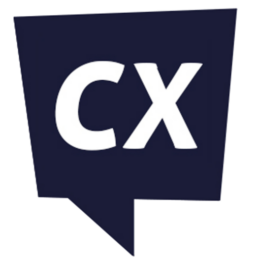Customer experience management (CXM) is an emerging area of research and innovation. It involves the analysis of an end-to-end omnichannel customer journey to identify bottlenecks, opportunities, and moments of truth to make value-generating interventions.
A 2021 survey by CXM company Sprinklr found that improving customer experience was a priority for 82% of decision-makers – yet 90% were missing critical capabilities in their technology stack to achieve the desired results.
A customer experience management tool is sometimes a wise investment for companies committed to the CX approach. Yet, no two are the same.
Here are 14 examples, each with unique capabilities to enable teams to improve customer experiences.
1. Alida CXM
Alida CXM is a closed-loop customer feedback system where users collect feedback, analyze it, and follow up with the customer in a single, consistent loop.
In addition, the tool aligns the feedback to specific stages of the customer journey. As such, CX teams gain a clear view of the end-to-end experience.
2. Sprinklr
Sprinklr offers a central CXM platform, including tools for customer care, marketing, research, and engagement teams.
Offering so many capabilities, the company names its solution a unified CXM platform, sharing data across numerous functions to deliver an all-encompassing view of the customer.
3. Adobe Experience Manager
Adobe Experience Manager provides CX managers with content personalization capabilities, delivering customized customer communications to increase engagement rates.
The solution also automates the delivery of customer surveys, enabling hyper-personalization strategies infused with AI and customer analytics.
4. Gupshup
Gupshup is a Communication Platform as a Service (CPaaS) tool that allows customer experience managers to engage with customers across 30+ messaging channels.
With only one API necessary, Gupshup also allows users to build bots across these channels to automate both inbound and outbound interactions.
5. StoryPulse
StoryPulse is a closed-loop system where customer-facing teams gather feedback, update customer relationship management (CRM) systems, and follow up with customers automatically.
Integrating with a wide range of CRM and CX tools, its primary use cases are for the healthcare and education sectors.
6. Pobuca
Pobuca offers several tools for customer experience managers, from CX measurement to designing customer journeys.
However, its core product is a cloud-based insight and analytics engine built on Microsoft Power BI. It incorporates machine learning algorithms to identify patterns in customer behavior and make recommendations accordingly.
7. Qualaroo
Qualaroo is a contextual CX analytics tool for customer experience managers. It allows users to run feedback surveys on various channels, including your website, e-commerce store, mobile apps, and third-party websites.
Harnessing this feedback, Qualaroo generates actionable insights across design, functionality, service, and other aspects of CX.
8. EngageBay
EngageBay is an “all-in-one” platform to support marketing, sales, and customer service teams. It packs several features into a single tool, from CRM and marketing automation to help desk and live chat software.
Typically, EngageBay proves popular for small to mid-sized businesses looking for an affordable CXM solution. Although, it includes many advanced analytics modules to increase customer understanding.
9. SmartKarrot
SmartKarrot provides organizations with the tools to enhance customer experience, product experience, and customer success.
Companies can use the solution to segment the customer base, execute outbound campaigns, run surveys, measure product adoption, and obtain a 360-degree view of the customer across touchpoints.
SmartKarrot has a set of automation playbooks to help customer experience managers optimize efforts.
10. Nicereply
Nicereply is a nifty little tool that makes it easier to run customer satisfaction (CSAT), net promoter score (NPS), and customer effort score (CES) surveys.
In doing so, the solution aims to increase survey response rates and get timely feedback without disrupting the customer experience.
Users send surveys via email or perhaps embed them into the email signature of contact center agents as a less invasive, far-reaching approach.
11. Netcore
Netcore allows CX teams to personalize experiences across multiple channels. Powered by its Raman AI engine, the solution predicts churn risk, recommends ROI strategies, and more.
While it is primarily for software product companies or e-commerce sellers, many CX teams harness the technology to bolster hyper-personalization strategies.
12. SlashQ
SlashQ is a digital queue management system that allows CX managers to improve customer service experiences through managing customer wait times.
For example, users may set up a virtual queue, and customers notified as they approach the allotted time slot. There is no need to wait on an IVR or open a chat conversation. Customers can continue their day as planned.
13. Cyara
Cyara allows CX teams to test omnichannel customer journeys by sending a series of synthetic interactions across the contact center.
Companies can automatically isolate and eliminate errors from their technology ecosystem by exploiting such a tool.
Such technology helps speed up testing for new digital transformation projects, enabling established companies to keep pace with digital disruptors.
14. Swell
Swell is an outbound customer engagement platform that identifies prospects via online reviews, website visits, social interactions, and more.
In addition, customer experience managers may optimize the online proposition and automate review-related processes.
Finally, businesses may use the tool to schedule appointments, conduct surveys, and process payments, ideal for smaller, localized businesses.
Itching to discover which CX tools can best support contact center performance? Read our article: Top 10 Contact Center Solutions for 2022







